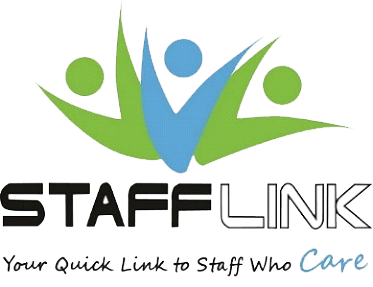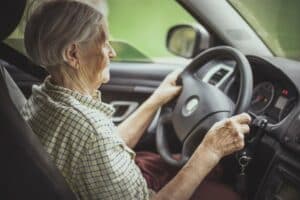Seniors and Post Pandemic Driving: 5 Things to Keep in Mind Before They Get Behind the Wheel Again
Guest Article by Vicki Spraul, President and Founder of Gray Matters Alliance, LLC
Raise your hand if you are itching to return to your normal routines, get back to your familiar activities or get in the car and hit the open roads. Well, guess who else is itching to get out there……our older drivers, maybe even more so than the rest of us.
This past year took a toll on our older loved ones. They were more vulnerable to get COVID, they were under much more stringent lockdowns (in some cases, they literally couldn’t leave their rooms), they were more secluded from family and friends, more isolated, and more depressed.
Before COVID, just going to the grocery store, breakfast with the guys, playing mahjong with the ladies, or picking up a prescription was their big outing. They may have only ventured out once or twice a week, but those interactions were everything to them. While for many of us, lockdowns were a break in our hectic lives and the opportunity to go at a slower pace. For older people it was extraordinarily hard to go from those few interactions to complete isolation.
So, what is so wrong if our older loved ones get back out on the roads like the rest of us?
Top 5 concerns to keep in mind before older drivers should hit the roads:
1.How well were they driving before COVID?
If you think they weren’t driving safely before, what makes you think they are any better now? Hint: They are not. In fact, chances are they are far worse. Most haven’t driven in a year. If you have ever come home from a long vacation after not driving, it feels a little weird at first, try not driving for an entire year. Driving is also a practiced skill, teenagers for example must log so many hours behind the wheel before getting their license.
2. How physically active were they during lockdowns?
Driving takes strength, mobility, and flexibility. Driving takes quick response times and quick actions. Driving requires you to look over your shoulder when pulling out of a parking spot, turning the steering wheel sharply or breaking quickly. Being physically fit goes beyond the act of driving as well. Getting in and out of and walking to and from the car also requires mobility. Lack of exercise results in a loss of muscle mass, something that is greatly needed for older people to avoid falls and broken bones.
3. Were they cognitively impaired or heading in that direction before the pandemic?
Unfortunately, chances are they have declined even further in this last year. Do you notice any cognitive issues currently that they didn’t have pre-COVID? This was a very, very lonely year for a lot them. How interactive and social were they with other people during this last year? Isolation, depression, lack of human contact, especially from family members, only exacerbates cognitive issues and mental health. In general, depression and isolation can be a slippery slope that can lead to illnesses and early deaths in our older population.
4. How many routine doctor visits did they miss?
Are they long overdue for their normal checkups, such as vision and hearing? How about their medications, are they still on the correct doses, too much, too little? Have they been put on anything new during this time that would hinder their driving abilities, such as anti-depressants or sleep aids? Were there any elective surgeries that were put on hold, such as cataract surgery or hip replacement that still need to be addressed?
5. How is the vehicle they will be driving and is it up to date?
There is a lot that goes into driving and the vehicle itself needs to be considered. Is it in good mechanical condition? After sitting for some time, throughout different seasons, it may need some neglected maintenance. Last thing you want is to have mom or dad broken down on the side of the road. Have the plates/tags expired and is their driver’s license still valid?
But mom just wants to get out there and get her hair done, it’s only up the street, what’s the big deal if she drives there.
We all want our loved ones to get back to what brings them joy. It’s important to remember that while we are all at a risk for a traffic accident, our older loved ones are at a much more elevated risk for it. It’s for this reason that it’s essential to make sure that mom remains safe, as well as the other people out on the roads.
What can you do to help them get back to their favorite destinations?
If you think it is just a case of being a little rusty, then just like our teenagers, practice, practice, practice! Log that time in, get them reacquainted to driving again. Yes, this requires you to get in the car with them to see how they perform, go to an empty parking lot if need be.
Things to observe
Are they speeding, driving too slowly, hugging the curb, crossing the center line, are they obeying the rules of theroad, are they distracted?
Do they get better with each drive or do they make the same errors each time?
If you feel you or other family members won’t get in the car to observe them, then a driving evaluation is suggested to gauge their safety risks.
How to prepare them to get ready to drive again
Have them examined both physically and cognitively. Get their checkups up-to-date,vision, hearing, medications, etc.Talk to their doctor about their driving, do they see anything during their exam that would preclude them from driving?Get that elective surgery they held off on. Cataract surgery, for example, has a huge success rate and opens up a whole new world for them.
Get them moving again, regain their strength, mobility and flexibility,which is not only good for the body, but the mind and outlook on life as well. Being physically active can also go a long way for people’s cognitive functions and mental well-being.
If, however there is evidence that points to a decline in their driving abilities, then driving cessation is the best solution.
Driving retirement does not mean a loss of independence or a loss of getting to their favorite places. No one knows mom or dad better than you do. You know the places they want to go to and what that place provides them once they get there. Are they anxious they won’t be able to get their medications or food if they can’t drive to get them? Are they worried they won’t get their haircuts or see their friends for coffee because they can’t drive themselves?
Find solutions to these concerns BEFORE having the talk with them. You will get objections and having your ducks in a row to combat those objections will make for a much easier talk.
If you do find that you are still having difficulty with your loved one driving when they shouldn’t be,or if the family dynamics are such that it won’t allow for a calm conversation, then seeking aprofessional driving assessor to intervene may be the best solution to resolve conflicts.
If handled properly, your loved one will be put at ease knowing there are alternate ways to get to all their favorite places and those things they think they will miss out on. They may actually find that they like this new way of life, getting door to door service, not worrying about driving in bad weather, finding a parking spot or lugging in groceries. More importantly, will be their ability to remain independent and have their dignity intact.
Gray Matters Alliance (GMA) provides health, safety, and technology services for the intellectual and the developmentally disabled and aging populations, families, professional staff, and caregivers. GMA offers Assistive Technology/Remote Supports, Driving Assessments, Durable Medical Equipment and Home Safety Assessments. GMA is dedicated to helping individuals live more independently and safely both in the home and on the roads. https://www.graymattersalliance.com/
For more information on help making decisions for an elderly family member, see Pam Stone’s post here.
- StaffLink Celebrates 38 Years in Business! - March 30, 2025
- What Is the Hourly Cost for Home Health in 2025? - March 12, 2025
- Seeking Retirees and Mature Persons to Provide In-home Care to Seniors - February 26, 2025

